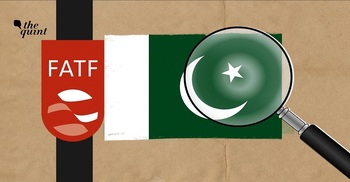New FATF guidelines challenging, admits Pakistan

Pakistan has admitted that the new Financial Action Task Force (FATF) guidelines are challenging and most “comprehensive ever given to any country”, days after the world’s anti-terror finance body decided that Islamabad will continue in its Grey List.
Despite efforts by Turkey to bail out Pakistan, the latter did not get any respite.
PM Imran Khan’s point man on the FATF, Hammad Azhar, while referring to the uphill task said on Sunday that Pakistan was focusing on implementation of all the recently-enacted laws to come out of the grey list of the global money laundering and terrorist financing watchdog. Azhar is also federal minister for industries and production.
Announcing its decision last Friday, the FATF stated that it doesn’t consider that actions claimed to have been taken by Pakistan are effective enough or strong enough to stop those engaged in terror financing.
With reference to “demonstrating effective implementation of targeted financial sanctions against all 1,267 and 1,373 designated terrorists (UN sanctions committee designation) and those acting for or on their behalf, preventing the raising and moving of funds including in relation to NPOs (non-profit organisations), identifying and freezing assets, and prohibiting access to funds and financial services,” the FATF said Pakistan is not doing enough against designated terrorists, and emerging proxies.
Pakistan is not moving with demonstrable firmness against groups such as Jaish-e-Mohammed and Lashkar-e-Toiba, because it is groups like these that are categorised, politely, as Non-Profit Organisations (NPOs), diplomatic sources have said. While Azhar said the coming evaluation was planned for “mid next year”, the FATF’s next plenary is due on February 21-26, 2021.
Last week, India stated that Pakistan has addressed only 21 action items so far out of 27 and is yet to address six important items.
With the economy in dire straits with slowing economic growth, Pakistan is already finding it difficult to get financial aid from multilateral agencies including the World Bank, International Monetary Fund, and Asian Development Bank, due to its grey list status.
Source: The Economic Times.







